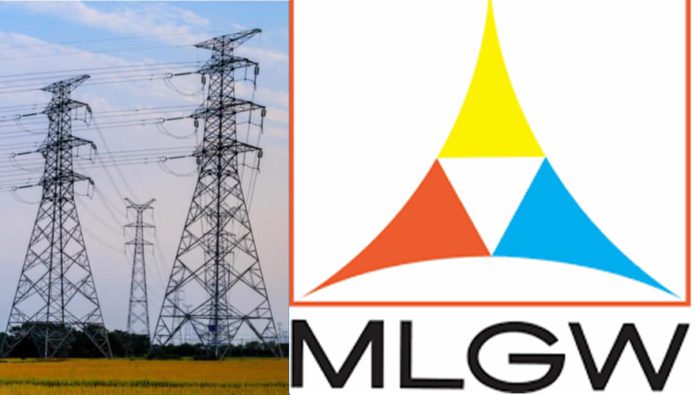by James Coleman and Dr. Sybil C. Mitchell —
Supported by visiting TVA leadership, Memphis Light Gas and Water Division President and CEO J.T. Young restated his suggestion that Memphis’ utility should extend its relationship with the federally-owned electric energy provider for another 20 years.
Young’s comments came Wednesday (Sept. 7) during the publicly-owned utility’s board meeting, which also was attended by TVA CEO Jeff Lyash.
During the meeting, Lyash stressed that the proposed TVA-MLGW contract’s 20-year term is non-negotiable. Memphis is TVA’s largest electric-power customer.
Community and environmental activists in attendance lashed out at Young’s recommendation.
Pearl Walker, civic engagement consultant for Memphis Has The Power, said Thursday (Sept. 8), “The recommendation is inappropriate in the sense that there’s not a lot of data being entertained surrounding this. It’s premature.”
Her advocacy is a part of the Southern Alliance for Clean Energy’s effort to steer MLGW towards cleaner energy.
Last week, Young said the utility was leaning in that direction after a study conducted by Georgia-based GDS Associates reflected increased energy costs if the utility opted to go with a competitor.
The four-year assessment also said the status quo would present the “greatest value and least risk.” Through the deal, MLGW would net a 3.1 percent base rate reduction. It could also receive as much as 5 percent of its power from renewables.
A previous presentation to the board said soaring natural gas prices had reversed any projected savings to Memphis offered by leaving.
Rather, it could result in a $70 to $80 million increase per year. In 2019 and 2020, the then in-progress study projected hundreds of millions in potential savings.
Activists have been pushing MLGW to sever the relationship in favor of a more renewable-centric portfolio for years.
Most of the electrical energy currently comes from natural-gas-powered plants. They have also consistently criticized MLGW for providing faulty analysis to keep the business relationship intact.
This includes accusations of highlighting risks and minimizing millions in potential savings.
MLGW’s transparency, regarding the process, also has been questioned.
“This process has been anything but transparent,” said Justin Pearson of Memphis Community Against Pollution (MCAP) in a preemptive press conference last week prior to Young’s announcement.
Pearson continued, “We have a responsibility and an obligation to poor folks who are being hurt by utility rates. With an eye toward the future, we must make sure our new power source is flexible when it comes to renewable energy. No more of these never-ending contracts.
“We need to make sure that whoever will be the power supplier is prioritizing renewable energy, promotes transparency, and keeps the needs of poor people over profits. The fight will be a long one. But we must make it clear that the status pro is not going to work for us.”
Beyond those concerns, there is angst regarding the hauling of coal ash from the shuttered Allen Fossil Plant through South Memphis neighborhoods, fueling accusations of environmental racism. The removal is expected to last until 2030.
Twenty-four providers took part in the bidding process, which was narrowed to a list of 13. According to GDS Associates’ Chris Dawson, updated pricing provided about a month ago revealed jumps in solar costs from bidders.
Meanwhile, the Southern Environmental Law Center is suing TVA, regarding its long-term contracts. The center alleges the contracts are “designed to keep local power distributors captive customers of the federal utility forever.”
The environmental nonprofit members provide legal help to communities seeking environmental safeguards and improvements, like coal ash removal or resisting pipeline permits.
Other critics likely to speak up during the 30-day public comment period include competitors in the bidding process, like Franklin Haney Company. The Tennessee-based provider has accused MLGW of bias against its bid, which it says would save the utility $350 million.
Mayor Jim Strickland also employed a consultant to study the bids, which were unsealed on Sept. 1. Enervison will report its findings after two years on the job.
After these groups weigh in, the MLGW board will vote on a contract. That won’t end the matter, however. The Memphis City Council, which has hired its own consultant, will still have final say with a vote.
Here are some comments from citizens, who addressed the MLGW board Sept. 1:
Paul Klein, Climate Reality Project: “We stand in support of more than 440,000 ratepayers of MLGW…, especially the 19 percent who live below the poverty line.
“TVA uses gas-burning plants … We advocate the development of more sustaining, renewable, and cleaner energy sources. MLGW is the largest customer of TVA. No more long-term contracts.”
Simone Christian, who lives in ZIP code 38109, which covers parts of South Memphis and Southwest Memphis: “Please research all options. We need reliable energy. Too many of our elders were left for days with no power during the ice storm.
“So many seniors in our community live on as little as $800 a month. A substantial portion of that income goes to paying utilities. Cleaner, more climate-friendly, and cheaper energy sources exist. Please consider them.”
Ron Robinson of Germantown: “I have lived in the area for 40 years … TVA has some good people, smart people who have ‘run the river,’ so to speak. They help all they can in the event of flooding … TVA developed an industrial economy along the river in the Tennessee Valley. It’s the largest public utility in the country. I don’t think we could do any better.”



